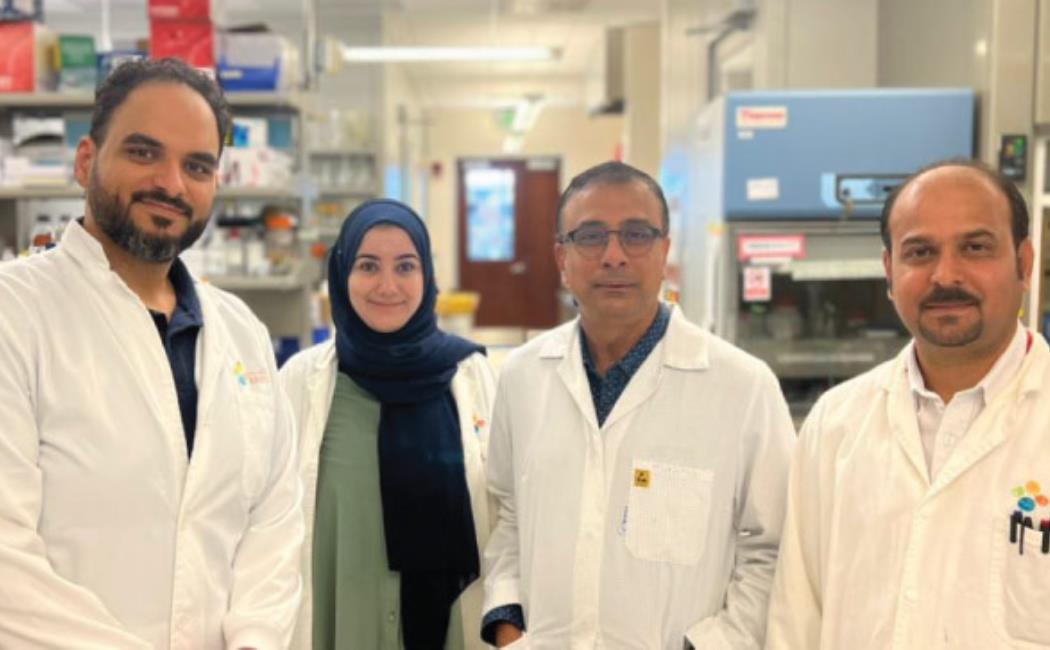
Disease severity linked to N protein of SARS-CoV-2
27 March, 2022
A multicenter collaboration tracking the spread and evolution of the SARS-CoV-2 virus in Saudi Arabia has identified mutations in the virus’s N protein associated with increased viral loads in COVID-19 patients. The study provides insight into the function of this nucleocapsid protein, which could help develop drugs that reduce the impact of coronavirus infection.
“The nucleocapsid (N) protein is the most abundant protein in all coronaviruses, including SARS-CoV-2,” explains KAUST research scientist Muhammad Shuaib. This protein binds to various parts of the viral RNA, affecting how it is packaged within the virus. It also plays roles inside host cells related to viral replication and host immune responses.
The researchers, working with Arnab Pain, found that two consecutive mutations in the N protein, called R203K and G204R, were associated with increased severity of COVID-19 in patients. Analyses showed that the changes to the protein made it bind more strongly to the viral RNA.
Click here to read the full story.
Image: From left: Sharif M. Hala, Sara Mfarrej, Professor Arnab Pain, Muhammad Shuaib and Tobias Mourier (not pictured) studied the N protein of SARS-CoV-2 to further understanding of its role in disease severity.
© 2022 KAUST.